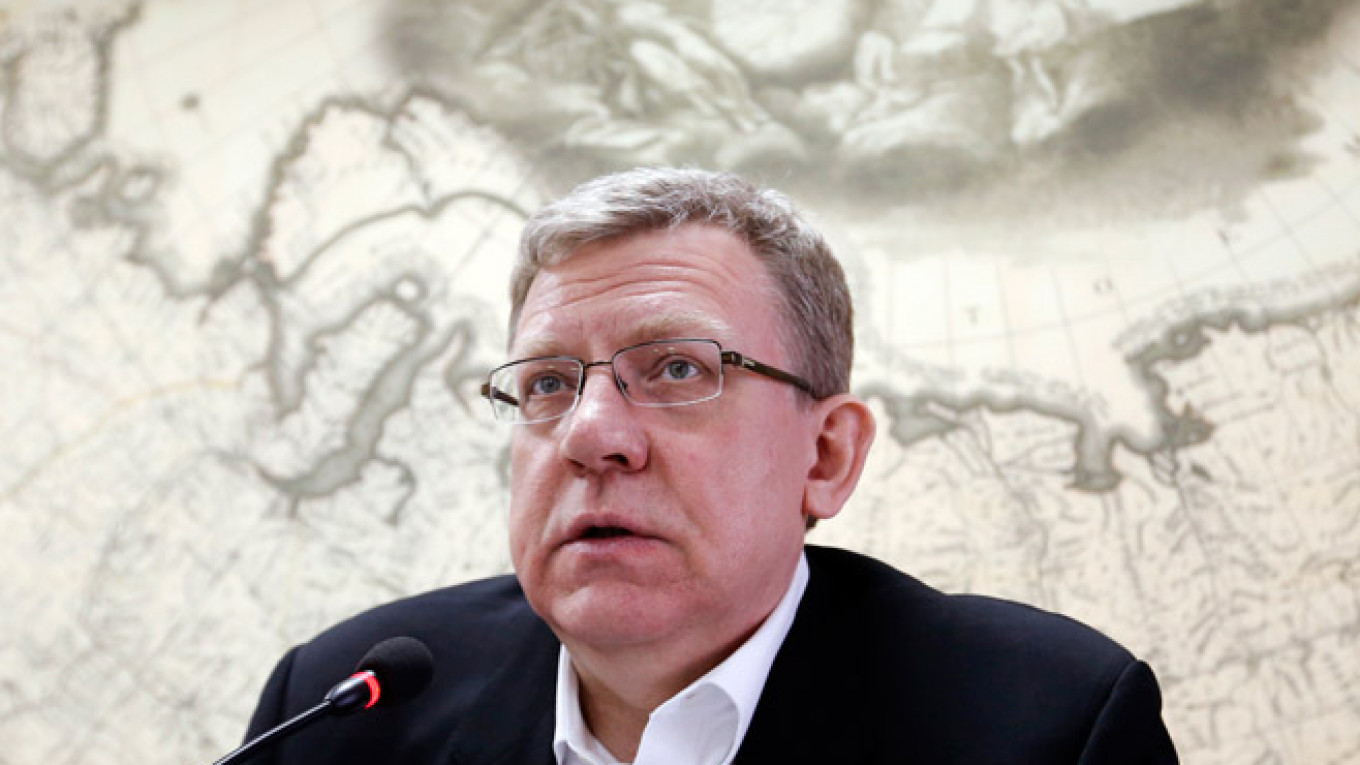Against the backdrop of a looming recession, Prime Minister Dmitry Medvedev, other top government officials and international experts will gather at the annual Gaidar Forum this Wednesday in Moscow to deliver their vision of the Russian economy's future.
While relations between Russia and the West are currently at their lowest point since the end of Cold War over the crisis in Ukraine, the forum's organizers claim that there is still great interest in their event — the number of foreign guests has even doubled since 2014.
"President Vladimir Putin told us to create a program that our foreign partners could not miss out on, so that is what we did," forum director Ivan Fedotov told The Moscow Times in an interview on Monday.
"This is the forum where the Russian government announces its agenda for the year and where key directions of the country's economic development are announced," he said. The forum, organized by the Russian Presidential Academy of National Economy and Public Administration, marks its fifth anniversary this year with the theme "Russia and the World: New Dimensions."
Russia is currently predicted to enter a recession this year, its economy hammered by Western sanctions and an oil price that has dropped 60 percent since its June 2014 peaks. Medvedev's government is under increased strain to deliver a plan to counter these challenges, as well as address systemic problems from corruption to education reform.
Vladimir Mau, the rector of the institute that organizes the event, said the adverse economic situation has exposed Russia's systemic weaknesses that were impossible to overcome when structural difficulties could be cushioned by huge oil revenues.
"It was impossible to use the oil rent to improve the institutions," said Mau, who advised Russia's First Deputy Prime Minister Yegor Gaidar on the country's transition to a market economy in 1993-94.
If the oil prices remain low, the Russian economy will have to experience a painful restructuring, but in the long run this will improve the country's institutions, both Mau and Fedotov said.
"Russia has three advantages: a balanced budget, very low sovereign debt and significant reserves, even though some of them were spent last year," Mau said.
At the same time, it will be difficult for the country to maintain the old level of budgetary expenditures.
"There is a cushion for the short-term drop in oil prices, but there is no cushion for the long-term one," Kenneth Rogoff, a U.S. economist who served at the International Monetary Fund and at the board of governors of the U.S. Federal Reserve System, said of Russia's reserves at the same news conference.
Rogoff admitted that oil prices could bounce back to $100 per barrel, but nobody can predict when that would happen.
"If you look at countries that had banking crises since World War II, then you see it takes six to eight years to go back where you have started," he said about the time frame for Russia's potential future economic recovery.
But while many economists believe that the oil price drop is a chance for Russia to undergo a "forced modernization," others heavily criticize the government for its lack of foresight.
In an interview with the RBC news agency published on Tuesday, former Finance Minister Alexei Kudrin, who was an architect of Russia's current financial system, said the government, including the president, does not have an adequate plan for reform and merely hopes that the situation will go back to normal "in the framework of some kind of cycle."
Kudrin also criticized the government's decision to leave massive budgetary expenditures on the state armaments intact and cut public investments in health care, infrastructure and education.
Both critics and government members will have a say at the forum, which organizers said is free of censorship.
"The forum will be an opportunity for people to listen to their opponents," Fedotov said.
Contact the author at [email protected]
A Message from The Moscow Times:
Dear readers,
We are facing unprecedented challenges. Russia's Prosecutor General's Office has designated The Moscow Times as an "undesirable" organization, criminalizing our work and putting our staff at risk of prosecution. This follows our earlier unjust labeling as a "foreign agent."
These actions are direct attempts to silence independent journalism in Russia. The authorities claim our work "discredits the decisions of the Russian leadership." We see things differently: we strive to provide accurate, unbiased reporting on Russia.
We, the journalists of The Moscow Times, refuse to be silenced. But to continue our work, we need your help.
Your support, no matter how small, makes a world of difference. If you can, please support us monthly starting from just $2. It's quick to set up, and every contribution makes a significant impact.
By supporting The Moscow Times, you're defending open, independent journalism in the face of repression. Thank you for standing with us.
Remind me later.






